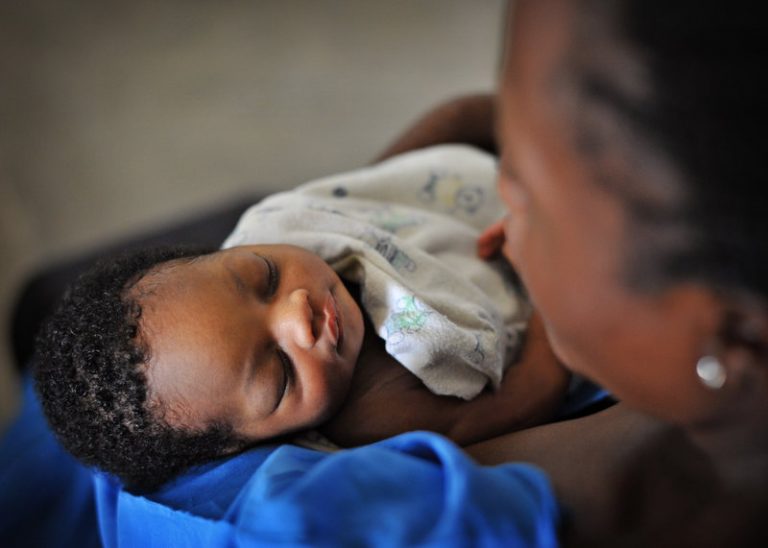“When you begin with basic nursing, that’s wonderful. That’s how babies’ lives can be saved,” says Christine Otai, a veteran nurse and Adara Development’s Global Health Manager. She smiles at the group of nurses moving around her, tending to babies and moving equipment.
The sound of beeping in the background lingers. The sounds are coming from a variety of machines, all working to keep tiny babies alive. They are helping them to breathe, eat, giving medication and keeping their little bodies the right temperature.
We’re in a Special Care Baby Unit (SCBU) – a unit inside a hospital that is designed to provide the best conditions and care to sick babies, such as those that are born premature (before 37 weeks gestation). This SCBU is in Central Uganda, at Nakaseke Hospital, a government hospital with limited resources that is one of only a handful of facilities for a catchment area of more than 800,000 people. The sounds are the same in a newborn unit in the US or Australia and the nurses are just as dedicated, but outside lies an entirely different world.
Babies born extremely premature (before 28 weeks) have a 90% chance of survival in developed countries. For low-income countries, this number sits at just 10%. Most of these deaths could be prevented through simple, cost-effective interventions.
STARTING IN KIWOKO
Since 1999, Adara Development has worked in Uganda with another hospital in Uganda to strengthen maternal, newborn and child health services by supporting holistic programmes that ensure women and children have access to critical services. One of the central projects in this programme has been the development of the Kiwoko Hospital neonatal intensive care unit (NICU), which provides advanced care to more than 1,200 small and sick newborns every year. We worked to design and undertake training, as well as to equip, assist and resource Kiwoko Hospital with staff to deliver and manage services. Initially, this training was carried out by an international medical volunteer team of highly trained clinical volunteers. But as expertise in the NICU has increased, training and development sessions are now conducted by Ugandan experts from the unit.
The Kiwoko Hospital NICU is now considered a centre of excellence in East Africa. The progress has been remarkable, with survival for the tiniest infants (those weighing less than 2.5kg) increasing from 62% to 88% between 2005 and 2017.
FROM KIWOKO TO NAKASEKE
We took this experience and shared our learning with Nakaseke Hospital in hopes of saving even more babies’ lives. The Adara team is assisting Nakaseke to develop a small SCBU, providing advice on the infrastructure, equipment, supplies and staffing necessary for a successful unit. They are also providing a newborn care training programme for the Nakaseke SCBU staff, led by Christine who has over 20 years’ experience in newborn care.
 “When I first started there were no cots, no incubators. It was totally different to Kiwoko,” laughs Christine. “But I thank God for the nurses I am working with. We work as a team.”
“When I first started there were no cots, no incubators. It was totally different to Kiwoko,” laughs Christine. “But I thank God for the nurses I am working with. We work as a team.”
Through this training programme, the Nakaseke nurses have had the opportunity to receive hands-on experience alongside expert NICU nurses at Kiwoko Hospital, as well as classroom teaching and twice-weekly mentoring at their home facility with Christine. Adara is also developing a Newborn Care Training Manual designed specifically for nurses and midwives working in low resource settings. The manual is geared towards a caregiver with limited knowledge in newborn care. It also goes beyond the average textbook to explain the “why” and “how” of newborn care – important practical information for a bedside caregiver.
NEXT STEPS
Based on our learnings from this pilot at Nakaseke, Adara will consider how best to help other facilities and touch more newborn lives in line with guidance from Ugandan newborn experts and the Ugandan Ministry of Health.
Christine can see this programme only expanding. “In two years or five years’ time, slowly we are going to reach out. It is going to be something big!” says Christine. “Doing basic neonatal care, you can save lives.”
See related story about Christine Otai here.

This blog is also part of the HNN collection, Telling Your Story: transforming care for small and sick newborns. If you have a story to share about transforming care for small and sick newborns, send a 300-600-word blog about your experience or research to info@healthynewbornnetwork.org.
